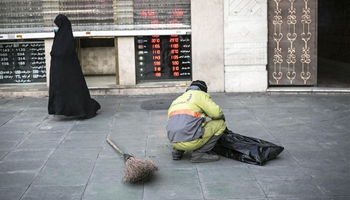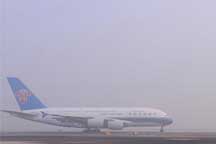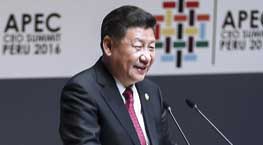BEIJING, Dec. 21 (Xinhua) -- Though he knows all about the restaurants, shopping malls and scenic spots in his east China city, 10-year-old Pan Haoning is not so familiar with the area's factories or farms.
However, the fifth-grader may soon be taking field trips to become acquainted with such sites.
China's Ministry of Education announced Monday that it has jointly issued a circular with 10 other government agencies encouraging primary and middle schools to organize educational trips for students and combine trips with classroom learning.
According to the circular, the educational trips will be organized for students from fourth to sixth grade of primary school and from the first and second grades of both junior and senior middle schools. The trips can help students better learn about society, the circular said.
Pan, who lives in the city of Huai'an in Jiangsu Province, has traveled plenty before, but educational trips are new to him.
Although spring and autumn outings, both day-long and half-day excursions, have been organized by Chinese schools for years, trips that integrate education are still rare in many areas.
Educational trips for primary school students will focus on learning about their hometowns, while junior and senior middle school students will take trips to teach them about their counties, cities, provinces and the country.
Wang Xiaoyan, an education expert with China's National Center of Education Development Research, proposed that effective educational trips need the assistance of both schools and governments.
In Xi'an, capital of northwest China's Shaanxi Province, a pilot program for educational trips started in 2013. Since then, local education departments and schools have worked together to help over 600,000 teachers and students from more than 1,000 schools participate.
During trips of up to five days, students will visit sites such as factories, farms, and research institutions and communicate with staff and experts there. The trips are meant to teach them about the history and development of their hometowns as well as culture and science.
Educational trips, as an extension of classroom learning, are an important method of improving quality-oriented education, said Li Yingke, the director of the education bureau of Xi'an.
China's education has long been criticized for its exam-driven curriculum, but over the last few years, the country has been reforming basic education and stressing comprehensive student development.
Ning Ying, Pan's mother, said the experience of the trips themselves are as important as the knowledge gained.
"Some of my friends have already organized similar trips so parents and children can experience rural life together," Ning said.
She said last summer her friends took their children to a small village in mountainous areas neighboring Jiangsu Province, staying there for a week and doing farm work together.
"This type of experience lets children living in the city understand what life in nearby rural areas is like," Ning said.
She also approves of student group travel, in which children share accommodation and have meals together, rather than with their parents.
"It will not only help children gain knowledge and experience, but also improve their skills in taking care of themselves," said Ning.
While educational trips are not yet common in Huai'an, Ning is looking forward to her son experiencing these outings.
"I hope that he can experience and learn from environments and things that are different from his daily life through such trips," she said.










